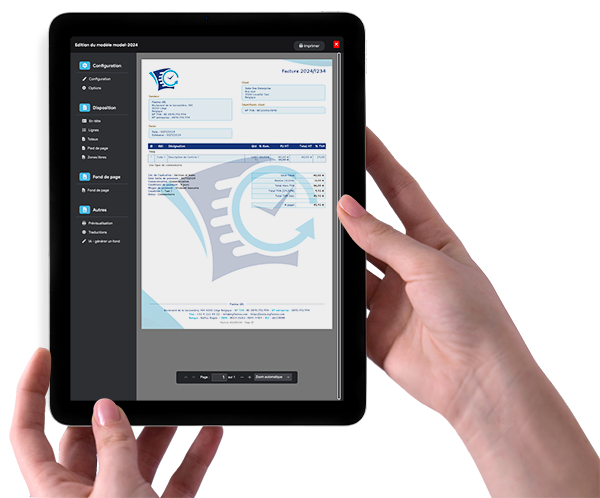Understanding a Purchase Invoice from Abroad
If your company has used a foreign service provider or supplier, you may have been surprised by the invoice from abroad and may not know exactly how to understand it. Discover right now the essential elements for interpreting the invoice and handling its exchange rate.
Legal requirements for an invoice from abroad
A foreign invoice from the European Union
In the case of purchasing service(s) or product(s) from a company located within the European Union, this transaction will be called "intra-community acquisition". This is also reflected on this invoice from abroad through the "intra-community VAT". This must correspond to the Belgian rate, since your company is domiciled in Belgium. Note also that the mention "exo" must have been affixed at the VAT amount to signify VAT exemption within the member states of the European Union.
International foreign invoices
If it's a purchase made from a supplier whose company is located outside the European Union, this commercial exchange will simply be called "import". In this case, you won't find any trace of VAT on the invoice from abroad. VAT is created when the goods cross customs.
Interpreting currencies on your foreign invoice
Accounting for an invoice from a foreign supplier
If you have received an invoice from abroad from a company domiciled internationally, especially outside the European Union, the amount to be paid will be denominated in a foreign currency, also called "currency". To account for it, you must first convert the currency into euros based on the exchange rate on the day the invoice is received.
Invoice payment
By paying a invoice from abroad on credit, in other words in several installments, you may end up paying a slightly different amount than what's indicated on the original invoice. This difference arises from the exchange rate, which can vary up or down. Thus, an exchange loss or exchange gain is possible depending on the exchange rate on the day you pay.
For example, if on 01/10/19, $1 is worth 1.3558 euros and on 15/10/19 $1 is worth 1.3524 euros, you won't pay the same amount out of pocket for a total invoice claiming $500.
To remember: An invoice from abroad must include legal requirements to have validity in Belgium, even if they vary depending on whether the accounting document originates from the European Union or not. Finally, the exchange rate and its variations must imperatively be taken into account when signing a contract with a foreign supplier.
And you, have you understood how foreign invoices work? Perhaps you needed help or simply want to create some? Has this article helped you see things more clearly? Come share your experiences and impressions in the comments, we'll be happy to answer you. Don't forget to come test for 15 days our online invoicing software. If you have questions or need tips, you can also contact us.




